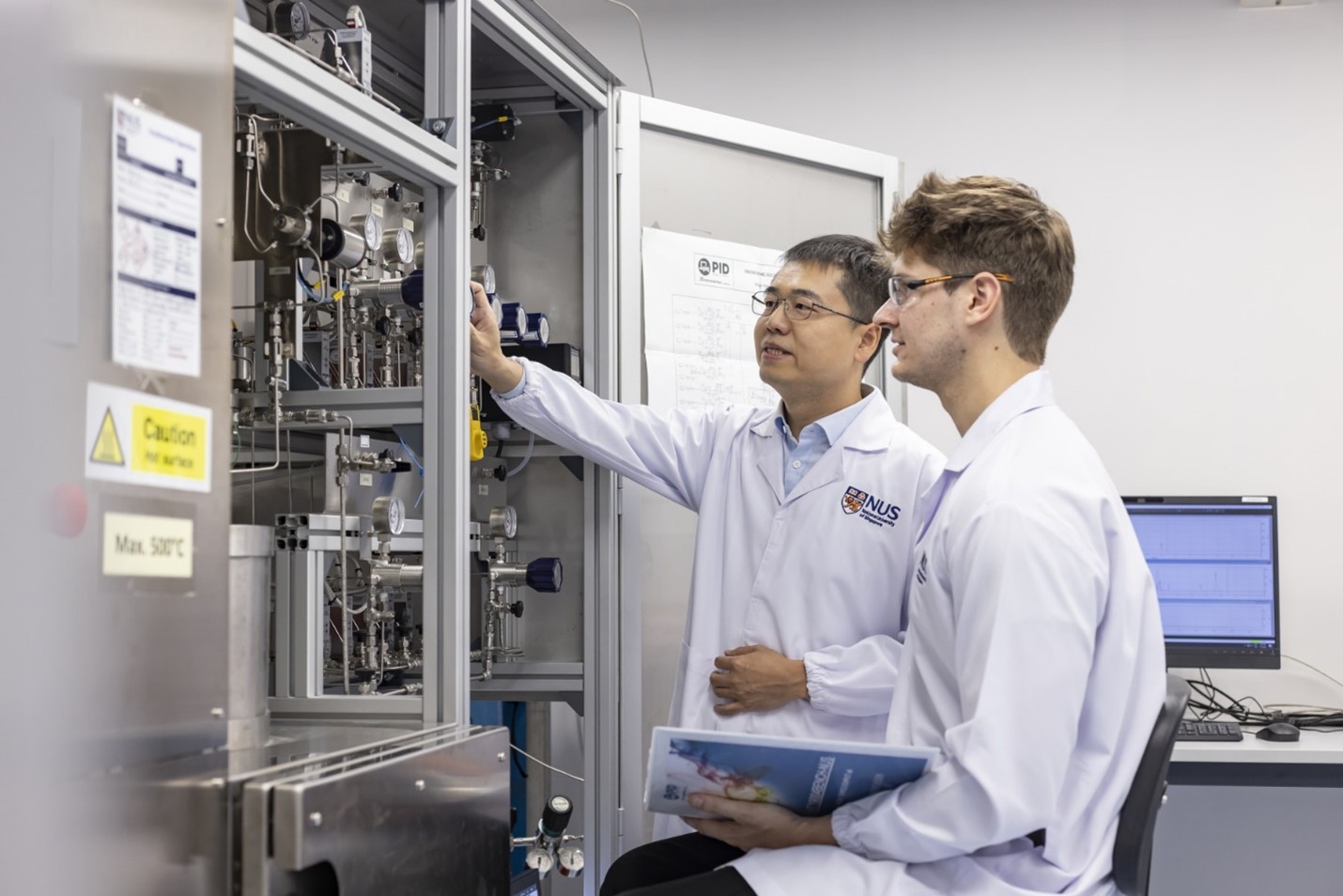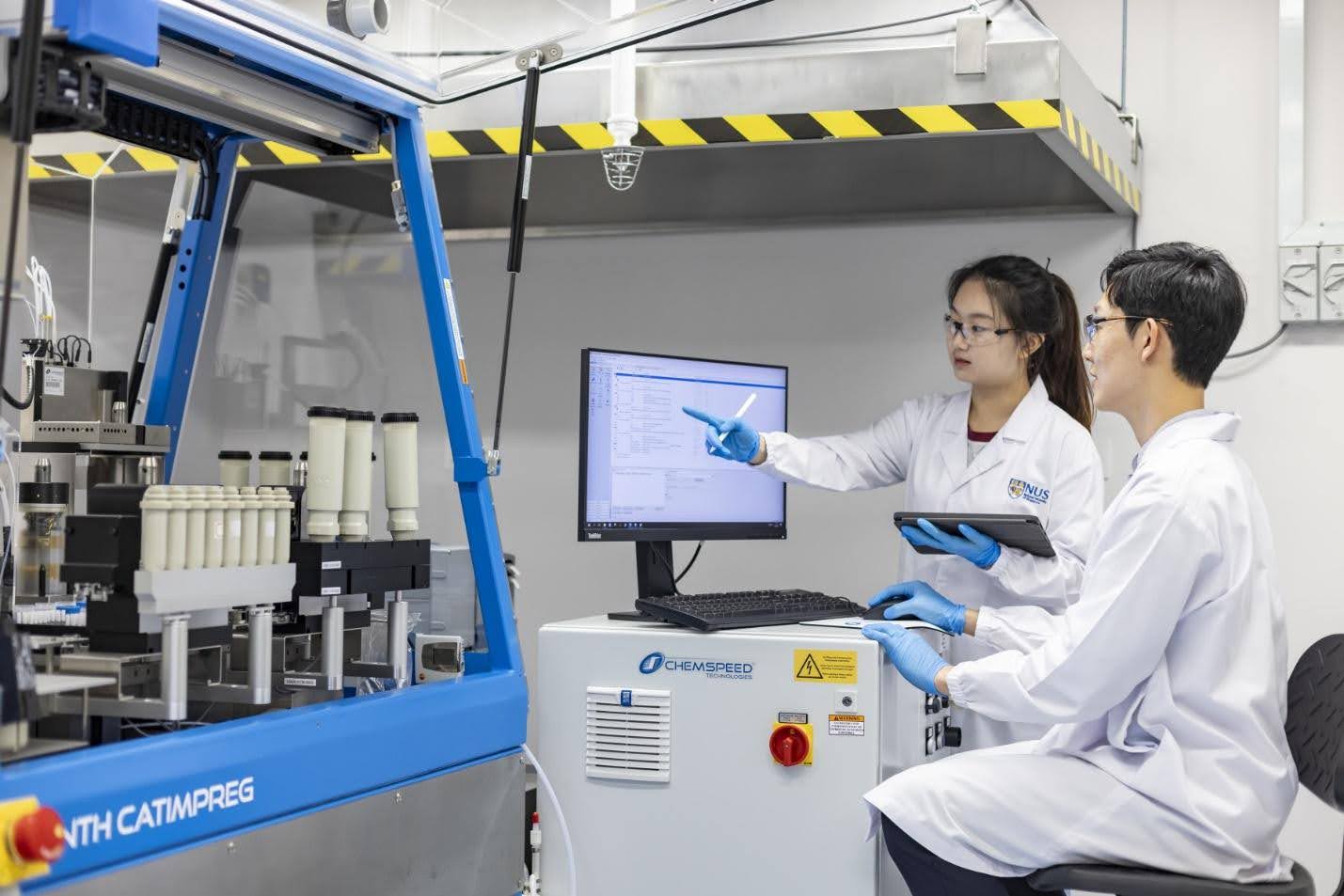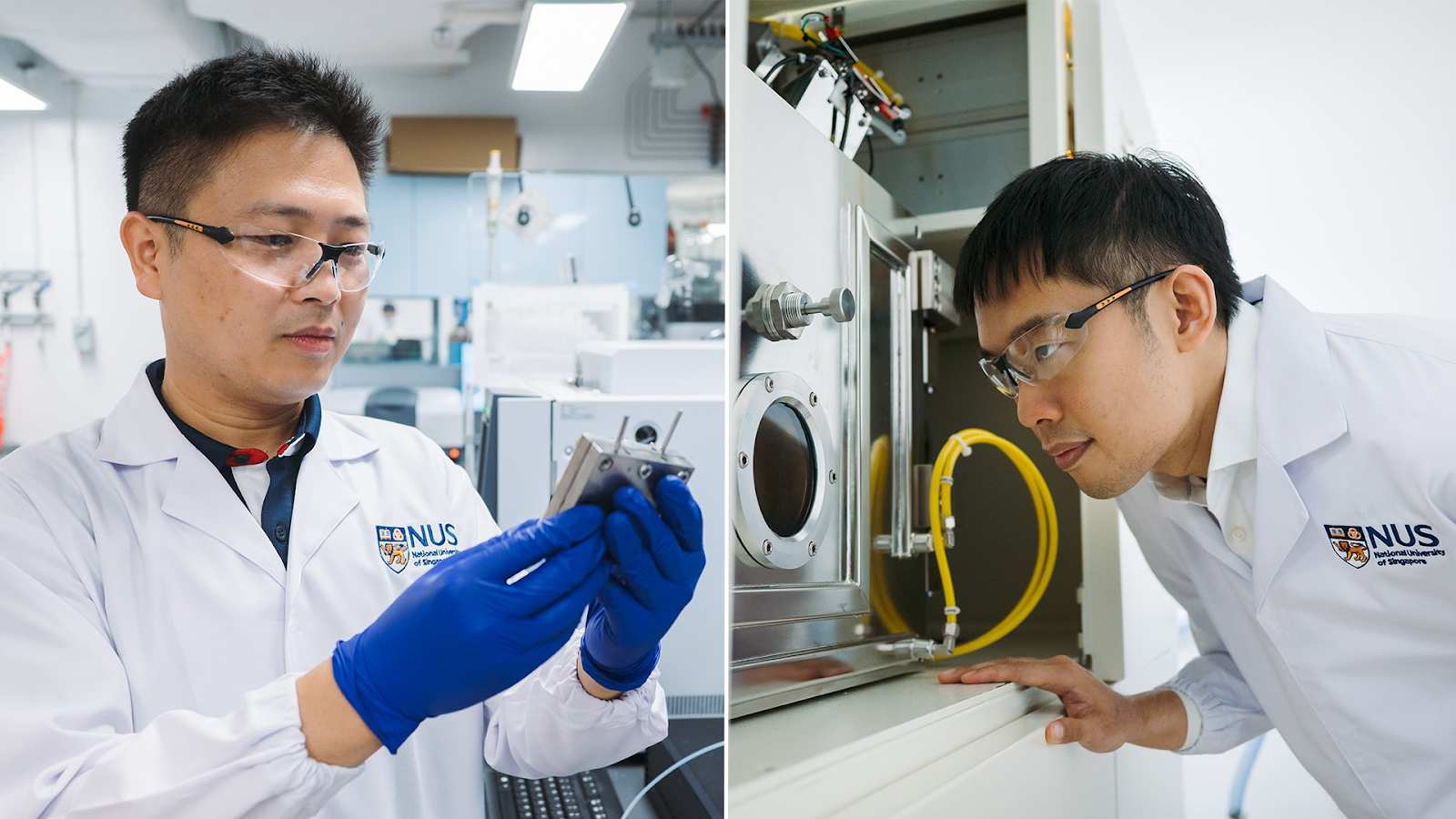
Prof Yan Ning (left), Director of NUS Centre for Hydrogen Innovations, giving guidance to a researcher for his research on carbon capture, utilisation, and storage.
As the world grapples with the escalating impacts of climate change, the urgency to transition to alternative sources of energy has never been more pronounced. Among the promising solutions is hydrogen, which stands out due to its efficiency as an energy carrier and its near-zero greenhouse gas emissions. However, the challenge lies in commercially viable green hydrogen as an alternative climate solution. This is where the Centre for Hydrogen Innovations (CHI) steps in.
Advancing Green Hydrogen Through CHI
Supported by the National University of Singapore (NUS), the Centre for Hydrogen Innovations was created to develop cutting-edge green technologies that will make hydrogen a commercially viable renewable energy source. As a prime example of tech for good, CHI is the first of its kind in Southeast Asia. It has received substantial support from a S$15 million gift from Temasek and a S$5 million matching fund from the government. Together with additional funding from the University, the total investment in the Centre has reached S$25 million. With this robust funding, CHI aims to spearhead advancements in hydrogen technology, driving innovation and collaboration to overcome the challenges associated with hydrogen adoption.
Adopting a Holistic Approach
To address the technological and infrastructural challenges of hydrogen adoption, CHI employs a comprehensive, holistic strategy. The Centre has awarded 25 innovative projects focusing on creating disruptive technologies that can transform the green hydrogen landscape. These research initiatives will address key areas, including:
H3Green Hydrogen Production
One of CHI’s primary focuses is exploring innovative technologies for the local production of hydrogen through processes like the electrolysis of water and methane pyrolysis, both powered by solar energy as a renewable energy source. This could mean a significant reduction in greenhouse gas emissions from industries relying on traditional fossil fuels, ultimately contributing to a cleaner and greener energy landscape.
Hydrogen Carrier Systems
Transporting and storing hydrogen poses significant challenges, particularly due to the technological hurdles involved in extracting hydrogen from ammonia, an effective carrier. CHI’s research aims to overcome these barriers by developing more energy-efficient and environmentally friendly extraction methods that will streamline the hydrogen supply chain, enhancing its viability for widespread use.
Furthermore, innovative approaches are being explored to convert hydrogen directly from water into a high-energy density liquid hydrogen carrier, bypassing the intermediate step of producing hydrogen gas. This could potentially eliminate safety hazards and reduce costs associated with hydrogen transport and storage.
Hydrogen Storage
Storing hydrogen safely and efficiently is another crucial focus for CHI. Hydrogen, like other flammable gases, poses significant risks if not stored correctly. One of the key pathways and enablers for the hydrogen economy to be established in Singapore lies in the area of hydrogen storage. CHI aims to develop technologies for the efficient, safe and scalable storage and release of hydrogen through dynamic catalysis for high-efficiency hydrogenation and dehydrogenation, and will pursue further research in advanced materials that can become commercially viable alternative options for hydrogen storage.


Pushing for a Change
The ongoing research and development at CHI are pivotal to Singapore’s National Hydrogen Strategy, which aims to meet up to half of the nation's power needs with hydrogen by 2050. This forward-thinking approach is particularly crucial for the maritime and aviation sectors, given Singapore's status as a major transshipment port and leading air hub.
By advancing green hydrogen systems through rigorous testing and research, Singapore is positioning itself as a catalyst for the global transition towards greener energy shipping and aviation, contributing not only to the domestic economy, but also to international efforts to reduce carbon emissions.
Doing Our Part in Shaping a Sustainable Future
CHI’s efforts in green hydrogen research signify more than just technological advancements; they embody a crucial step towards a sustainable future. The innovations being developed have the potential to transform our energy landscape, drastically reducing carbon emissions and paving the way for a cleaner, greener world.
By supporting initiatives like those at NUS, you can play a pivotal role in advancing green energy solutions. Contributions to NUS Giving help fund research that not only pushes the boundaries of science but also creates a lasting, positive impact on society and the environment.
Join us in shaping a future where sustainable energy is not just a possibility but a reality.






